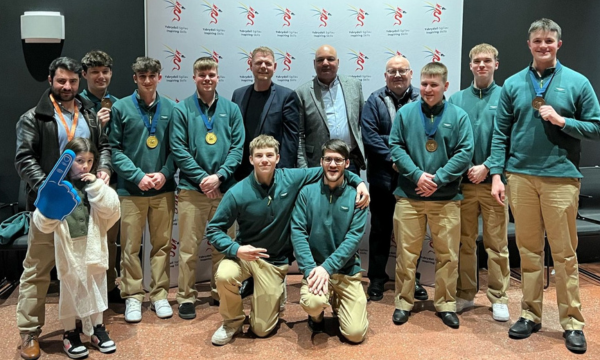
To demonstrate its commitment to the Welsh steel industry and its workforce, the UK Government has reaffirmed a substantial £100 million investment in skills, training, and job creation in South Wales.
A transition board to support the people, businesses and communities affected by the proposed transition to low-CO₂ steelmaking in Port Talbot, was established in October to oversee the process. The group met again yesterday, the board’s fourth meeting.
This week’s latest meeting was chaired by David TC Davies, Secretary of State for Wales and was also attended by first minister Vaughan Gething, who handed over the deputy chair role to Jeremy Miles the new Cabinet Secretary for Economy, Energy and Welsh Language.
In addition to a wide variety of government and Tata representatives the meeting was also attended by independent members, Katherine Bennett CBE, Anne Jessopp CBE and Sarah Williams-Gardner.
The transition board will have access to up to £100 million to invest in skills and regeneration programmes for the local area. It will focus on providing immediate support for the people, businesses and communities directly affected by the proposed Tata transition. It will also be responsible for developing a plan for local regeneration and economic growth for the next decade.
The funding will be deployed following the conclusion of Tata’s consultation with its workforce, ensuring targeted support for those impacted by the changes, including the recent closure of the coke ovens at Port Talbot and the voluntary redundancy proposals.
The transition board will not oversee the proposed £1.25bn investment in low-CO₂ steelmaking at Tata. This is for the company to oversee with the Department for Business and Trade.
The meeting comes at a pivotal moment as the region navigates the complexities of Tata Steel’s decision to shift towards more sustainable steelmaking practices. This includes an electric arc furnace which uses an electric current to melt scrap steel or iron to produce steel, whereas blast furnaces use coke, a carbon-intensive fuel made from coal to produce steel.
The transition board’s agenda extends beyond immediate relief efforts. Its vision for local regeneration and economic growth spanning the next decade aims to equip the South Wales community with the skills and opportunities needed to thrive in a changing industrial landscape, emphasising sustainable practices and low-carbon technologies.
Chair of the Tata Steel / Port Talbot Transition Board and Secretary of State for Wales, David TC Davies said in a statement.
“It is vital that everything is done to support workers affected by Tata’s decision to move to greener steelmaking.
“The Transition Board I chair is carrying out this work and £100 million will be invested directly in skills, training and job creation as soon as the outcome of the ongoing consultation between Tata and its workforce is known and it is clear which workers are affected.
“The UK Government has put in place one of the biggest support packages in history, with a £500 million grant as part of the £1.25 billion commitment by Tata to secure the future of the Welsh steel industry.
“This record deal shows how much the UK Government values the Welsh steel industry and the people whose livelihoods depend on it. Without it, many thousands more jobs would have been lost at Port Talbot and in the wider supply chain.”






